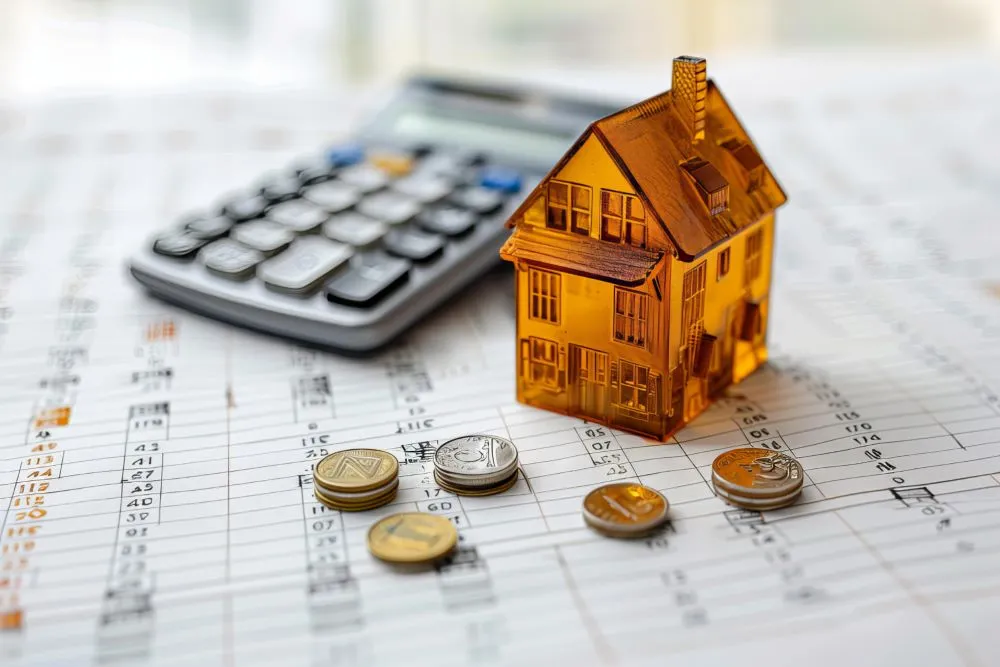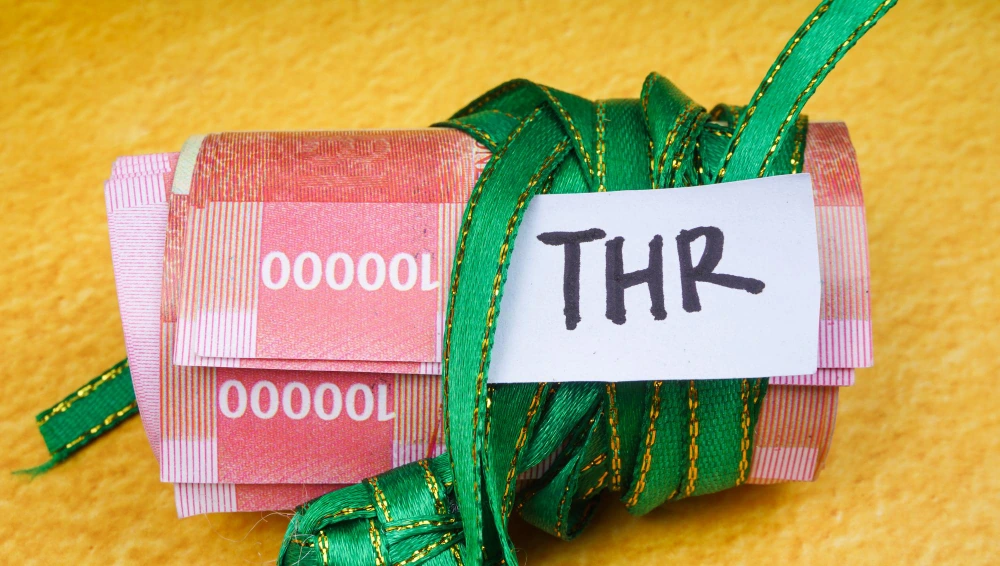For those of you who are applying for a loan with property as collateral or Home Ownership Credit (KPR), you will definitely be familiar with the term appraisal fee. This is a fee that must be paid in the credit application process. This process is carried out by professionals through analysis after they have assigned a value to your property.
Therefore, you need to know more about appraisal costs. The following is a review of the meaning of appraisal fees and how to calculate them, see the review here.
What is the Appraisal Process?
The appraisal process is an assessment of the value or quality of an asset, such as property, vehicle, or business, carried out by an independent appraiser (appraiser). The goal is to determine the fair market value of the asset, usually for purchase, sale, financing, insurance, or tax purposes.
Understanding Appraisal Costs
An appraisal fee is an amount of money that must be paid for services to assess the value or quality of an asset, such as property, vehicles, or business. This fee is charged to pay the professional staff (appraiser) who carries out an independent assessment of the asset.
Appraisal fees can vary depending on several factors, including the type of asset being appraised, the complexity of the appraisal, the location of the asset, and the experience and qualifications of the appraiser. For example, appraisals for commercial properties may be more expensive than residential properties due to greater complexity.
This fee is usually paid by the party requiring the appraisal, such as the buyer, seller, or asset owner, and is often part of the financing process, such as when applying for a loan or mortgage.
Types of Appraisals
Appraisals can be divided into several types depending on the purpose of the appraisal and the type of asset being valued. The following are some common types of appraisals:
1. Property Appraisal
- Residential property appraisal: Valuation of a house or other residential property. Usually used in buying, selling or refinancing property.
- Commercial property appraisal: Appraisal of property used for business purposes, such as office buildings, shophouses, or factories.
- Land property appraisal: Appraisal of vacant land or land that has not been developed.
2. Business Appraisal
An assessment of the value of a business or company, which is often used in business sale and purchase transactions, business combinations (mergers), or company restructuring.
3. Appraisal of Personal Property
Appraisal of personal items, such as jewelry, vehicles, art, and other collectibles.
4. Appraisal of Machines and Equipment
Assessment of the value of machines, industrial equipment, or heavy equipment used in business operations.
5. Financial Assessment
Valuation of financial instruments, such as shares, bonds, or investment portfolios. It is often used for tax purposes, litigation, or business transactions.
6. Insurance Appraisal
An appraisal used to determine the amount of insurance coverage required for a particular asset. This helps in ensuring that assets are properly insured for their value.
7. Tax Appraisal
An appraisal used by taxing authorities to determine the value of property that will be taxed. It often differs from market appraisals because it follows certain rules set by the government.
8. Project Appraisal
Assessment of the feasibility and potential returns of an investment project, often used in real estate development or infrastructure projects.
Requirements for Submitting an Appraisal
To apply for an appraisal, there are several requirements and documents that are generally required. These requirements can vary depending on the type of asset being appraised and the purpose of the appraisal. The following are the general conditions that are usually required:
- KTP or passport
- NPWP
- Certificate or deed of asset ownership
- Business license if used for business
- Asset details
- Transaction history (optional)
- Financial statements
- Final tax bill
- Application letter for appraisal purposes
- Contract or agreement
- Inspection permit
- Proof of payment of appraisal fees
- Letter of recommendation
Factors Influencing Appraisal
Several factors can influence the appraisal results of an asset, such as property, business, or other valuables. These factors help the appraiser determine the fair value of the asset. Here are some of the main factors that influence appraisal:
1. Location
Asset location, especially for property, greatly influences value. Properties that are in strategic areas, close to public facilities, business centers, or developing areas tend to have higher value. There is also the surrounding environment, such as noise levels, security, and school quality, also playing an important role.
2. Physical Condition
Next, the age of the asset, whether it is property, vehicle or machinery, as well as its physical condition (whether it requires repair or is in prime condition) greatly influences the appraisal value. For properties, the architectural design, the quality of the materials used and the reliability of the construction are also important.
3. Market and Demand
Current market conditions, including supply and demand for that type of asset, will affect value. For example, in a booming property market, property values tend to be higher. In addition, overall economic conditions, such as interest rates, inflation, and local or global economic stability, also have an impact on the appraisal results.
4. Purpose of Appraisal
The assigned value may vary depending on the purpose of the appraisal, such as financing, insurance, taxation, or sales. For example, the value for insurance purposes may differ from the market value at sale.
5. Comparison of Similar Assets
Appraisers often use sales of similar assets in the same area as a reference (comparable sales). The selling price of a property or other similar asset can affect the valuation.
6. Economic Conditions and Regulations
Zoning policies, environmental regulations, or legal changes regarding a particular asset can affect the appraisal value. In addition, the tax rates applicable to certain types of assets or to property transactions can impact the value of the assets.
7. Income or Income Potential
Especially for commercial or business properties, the future earning potential of the asset, such as rental income, greatly influences the appraisal value. For businesses, financial performance, including cash flow, profits, and growth, is an important factor.
8. Environmental Factors
Risks such as natural disasters, pollution, or other environmental issues that may affect the use or value of the asset are also taken into account.
9. Facilities and Infrastructure
The availability and quality of infrastructure such as roads, public transportation, electricity and water can affect the value of assets, especially property. Additional amenities such as parking, gardens, or fitness centers for residential or commercial properties can add value.
10. Market Sentiment
General perception of a particular location or type of asset can also influence value. For example, if an area is considered up and coming, properties in that area may be valued higher.
How Long Does the Appraisal Process Take?
The length of the appraisal process can vary depending on several factors, including the type of asset being appraised, the complexity of the appraisal, and the availability of information. The following is an estimate of the time typically required for various types of appraisals:
1. Property Appraisal
Residential properties usually take around 1-2 weeks. This includes inspections, data collection, market analysis, and report preparation. Meanwhile, commercial properties may take longer, around 2-4 weeks, depending on the size and complexity of the property.
2. Business Appraisal
Small businesses usually take about 2-4 weeks. This involves analyzing financial statements, market conditions, and other business factors. Meanwhile, large businesses take longer, up to 6-8 weeks or more, depending on the complexity and size of the business.
3. Appraisal of Personal Property
Personal property appraisals usually take 1-2 weeks, depending on the type and number of items being appraised.
4. Appraisal of Machines and Equipment
This process can take 1-3 weeks, depending on the number and complexity of the equipment being assessed.
5. Financial Appraisal
Financial instruments usually take around 1-2 weeks, depending on the type and complexity of the financial instrument being valued.
6. Tax Appraisal
The time required may vary, but is usually around 2-3 weeks, depending on the requirements and complexity of the tax assessment.
How Much Does a Home Appraisal Cost?
Home appraisal costs in Indonesia also vary depending on several factors such as location, size of the house, and complexity of the appraisal. The general cost range for a small to medium house (for example, 2-3 bedrooms) is usually between IDR 2,000,000 to IDR 5,000,000. Meanwhile, for large or luxury houses it ranges from IDR 5,000,000 to IDR 10,000,000 or more, depending on the size and complexity.
When Must the Appraisal Fee be Paid?
Appraisal fees are usually paid at or after the appraisal process is completed, depending on the agreement between the applicant and the company or appraiser. The following are some common scenarios regarding payment of appraisal fees:
1. Prepayment
Some appraisal companies may require payment up front before conducting an inspection or starting the appraisal process. This can be a deposit or full payment. Sometimes, advance payment is required as a booking fee to secure the appraisal schedule.
2. Payment After Inspection
In most cases, the appraisal fee is paid at the time of submission of the appraisal report. This is usually done after the appraiser has completed the inspection and analysis and prepared a report.
3. Payment by Other Means
Payment can be made based on an agreement between the applicant and the appraiser. Some may offer gradual payment options or payment after certain processes are completed.
Who Covers the Appraisal Costs?
Usually, appraisal costs are borne by the party requesting the appraisal or who benefits from the appraisal process. Here are some common situations:
1. Property Buyers
If you buy a home and need an appraisal to get a mortgage, the cost of the appraisal is usually paid by the buyer. However, in some cases, the seller or real estate agent may help cover the costs as part of the deal.
2. Property Seller
If the seller wants to get an appraisal to determine a fair selling price, they usually cover the cost of the appraisal themselves.
3. Property Owner
If you want to refinance your home, the appraisal costs for the required appraisal are usually covered by the property owner applying for the refinance.
4. Financial Institutions or Banks
In some situations, such as a mortgage application, a financial institution or bank may pay the appraisal fee directly and then deduct the fee from your loan funds.
5. Insurance
If you need an appraisal for insurance purposes, such as determining the insurance value for a property, the cost is usually borne by the insurance owner.
6. Third Parties
In situations such as legal disputes or appraisals for tax purposes, the cost of the appraisal may be borne by the party requesting the appraisal or in accordance with a court order.
How to Calculate Appraisal Fees
Calculating appraisal costs involves several steps and considerations that can vary depending on the type of asset, complexity of the appraisal, and location. The following is a general way to calculate appraisal costs:
1. Identify Asset Type and Complexity
Determine the type of asset, whether you need an appraisal for residential property, commercial, business, or personal items. Also consider factors such as asset size, physical condition, location, and special features that affect the time and effort required for the appraisal.
2. Determine the Appraiser Rate
Some appraisers charge a flat rate for certain appraisals, while others may charge an hourly rate. Be sure to understand the rate structure used. Find out the average rate for the type of appraisal you need in your area. This can help you get a general idea of costs.
3. Calculate Costs
Fees may vary depending on location. In large cities or areas with a high cost of living, appraisal rates may be higher. Larger or more complex assets usually require higher fees. Assets with special conditions or unique features can affect costs.
4. Ask for Offers From Several Appraisers
Get quotes from several appraisers to compare costs and services offered. This also helps you ensure you are getting a fair price.
5. Consider Additional Costs
If there are additional costs for physical inspections or travel, be sure to account for them. Some appraisers may charge a fee for additional documentation or reports.
6. Consult with an Appraiser
Discuss the costs in detail with the appraiser before starting the process to ensure all costs involved are clear. The following is an example of a rough calculation:
- For example, the fixed rate for residential property appraisals in your area is IDR 2,500,000.
- If there are additional costs for special inspections or travel of IDR 500,000, the total cost may be around IDR 3,000,000.
That's a review of what appraisal fees are and how to calculate them. When applying for a loan secured by property or KPR, it is important for you to consider this aspect. Therefore, if you find out early, it can be a consideration and thorough preparation before making a decision. Hope it is useful!
---
BFI Finance, as a trusted financing company in Indonesia, which also provides loans guaranteed by certificates and Home Ownership Credit (KPR), entrusts the home appraisal process to be carried out by a third party. The amount of the appraisal fee for each house depends on the factors mentioned above. Apply for financing with a guaranteed house certificate now and enjoy high disbursement and competitive interest rates. #SelaluAdaJalan with BFI Finance.







